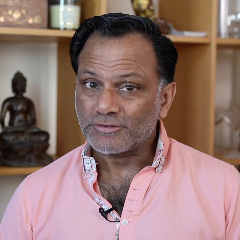You are not currently logged in. Please create an account or log in to view the full course.
Reconstructive Memory
- About
- Transcript
- Cite
Memory – Disorders and Brain Damage
In this course, Dr Ashok Jansari (Goldsmiths, University of London) explores memory in the context of brain damage and memory disorders. In the first lecture, we think about reconstructive memory by understanding the process of remembering not as locating a ‘file’, but as a reconstruction of sensory data, contextualised as an event. In the second lecture, we consider how people differ in their memory performance and where these differences might originate. Next, we look at some key figures in memory psychology, who have helped shape our understanding of which brain areas are responsible for which aspect of memory performance. In the fourth and final lecture, we discuss dementia as an umbrella term for degenerative brain disorders and some of the current research looking to improve our diagnostic ability and potential for curing these conditions.
Reconstructive Memory
In this lecture, we think about reconstructive memory, focusing in particular on: (i) how the actual reconstructive nature of memory differs from the ‘filing system’ of memory that is commonly thought to be representative; (ii) the role of engrams as a store of combined sensory data; (iii) a real case study of an individual demonstrating improper memory reconstruction as a result of an aneurism, as well as Alexander Luria’s ‘S’ case study, who was able to recall one hundred written numbers ten years after they were originally shown them.
Cite this Lecture
APA style
Jansari, A. (2022, February 17). Memory – Disorders and Brain Damage - Reconstructive Memory [Video]. MASSOLIT. https://massolit.io/courses/memory-disorders-and-brain-damage/reconstructive-memory
MLA style
Jansari, A. "Memory – Disorders and Brain Damage – Reconstructive Memory." MASSOLIT, uploaded by MASSOLIT, 17 Feb 2022, https://massolit.io/courses/memory-disorders-and-brain-damage/reconstructive-memory

